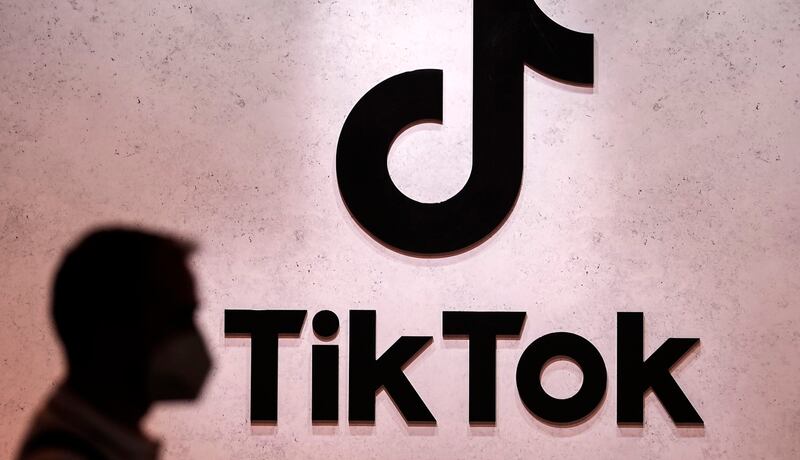Chinese Foreign Ministry spokesman Wang Wenbin accused the Biden administration of targeting foreign-owned companies with unfair standards after it called for the Chinese owners of the popular social media platform TikTok to sell their stake or face a ban on the app.
Wang said no evidence has been presented that TikTok threatens U.S. national security. His comments follow reports that the Committee on Foreign Investment in the United States, a multi-agency federal taskforce that reviews the national security implications of foreign investments, had appealed to TikTok for the ownership divestiture.
The dispute also comes as a growing chorus of U.S. leaders and lawmakers say they want the popular app banned to prevent Beijing using it to track American citizens and propagandize to them.
“The U.S. should stop spreading disinformation about data security, stop suppressing the relevant company, and provide an open, fair and non-discriminatory environment for foreign businesses to invest and operate in the U.S.,” Wang said at a press conference on Thursday.
“Data security issues should not be used as a tool for some countries to overstretch the concept of national security, abuse state power, and unjustifiably suppress other countries’ enterprises,” he said.

Reuters reported on Wednesday that CFIUS, which is led by Treasury Secretary Janet Yellen and has been investigating the Beijing-based TikTok owner ByteDance since it purchased the American-owned service musical.ly in 2017, told TikTok it could be banned if ByteDance does not sell its controlling stake to U.S.-based owners.
Growing bipartisanship
Former U.S. President Donald Trump previously signed an order to ban TikTok in 2020, but TikTok appealed and the order was blocked by a federal judge, who ruled Trump had overstepped his powers.
Proponents of a ban have since focussed on CFIUS’s efforts, which have been criticized for tardiness, and, increasingly, on Congress.
The burgeoning movement to ban TikTok, which is currently the fifth-most downloaded free app on the Apple’s App Store and the third-most popular in the Google Play App Store, has in turn become a rare area of bipartisan policy agreement in the U.S. Congress this year.
Just last week, senators from both parties introduced a bill that would explicitly allow the executive branch to ban any foreign-owned technology deemed a threat to national security, with the White House issuing a statement in support of the bill as it was being announced.
Led by Sen. Mark Warner, a Democrat from Virginia who chairs the Senate intelligence committee, the group of lawmakers stressed the bill was not aimed solely at TikTok – but also had trouble speaking about anything other than the Chinese-owned app at a press conference.
“I've long been concerned about how every social media company uses the data it collects on users,” Sen. John Thune, a Republican from South Dakota and a co-sponsor, said at the time. “But I'm particularly concerned about TikTok’s connections to the Chinese Communist Party, which repeatedly – repeatedly – spies on American citizens.”
Congressional hearing
TikTok did not respond to a request for comment from Radio Free Asia.
But amid such threats from lawmakers, spokespeople for TikTok have regularly referred back to its cooperation in the CFIUS investigation as evidence of its cooperation with U.S. authorities on the issue of privacy.
They have said TikTok has made a number of proposals to CFIUS to silo its data on U.S. users from its Chinese-owned parent, including allowing audits of its technology. But U.S. lawmakers like Warner and Thune have rejected the trustworthiness of any such proposal.
“The Chinese Communist Party has proven over the last few years that it is willing to lie about just about everything,” Thune said last week.
TiKTok CEO Shou Zi Chew is set to testify next Thursday before the House Energy and Commerce Committee, which is chaired by Rep. Cathy McMorris Rodgers, a Republican from Washington.
McMorris Rogers said in a press release earlier this year that she believes thar TikTok has "knowingly allowed the ability for the Chinese Communist Party to access American user data" and called for Shou to "provide complete and honest answers for people" in her testimony.
Edited by Malcolm Foster.
